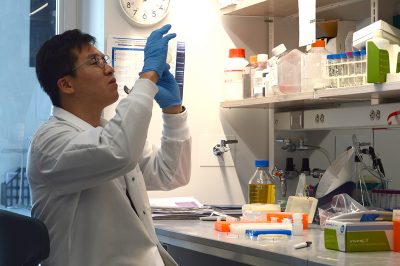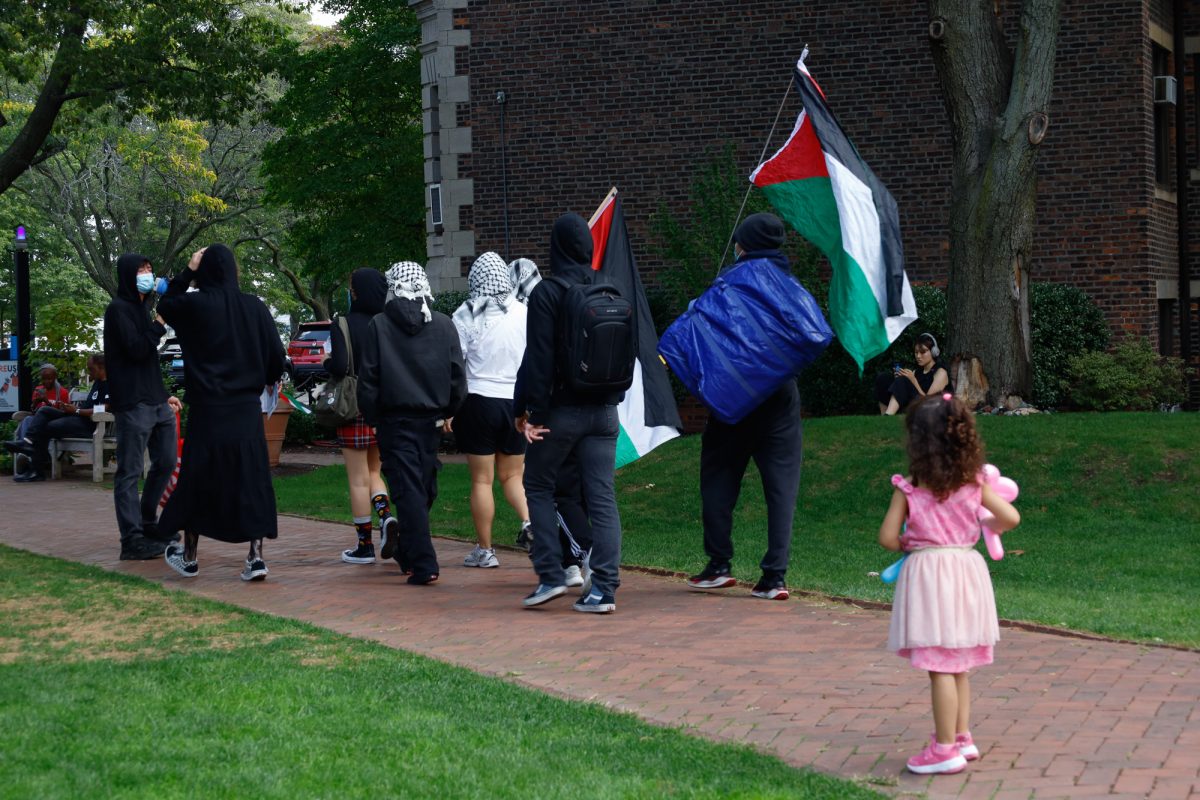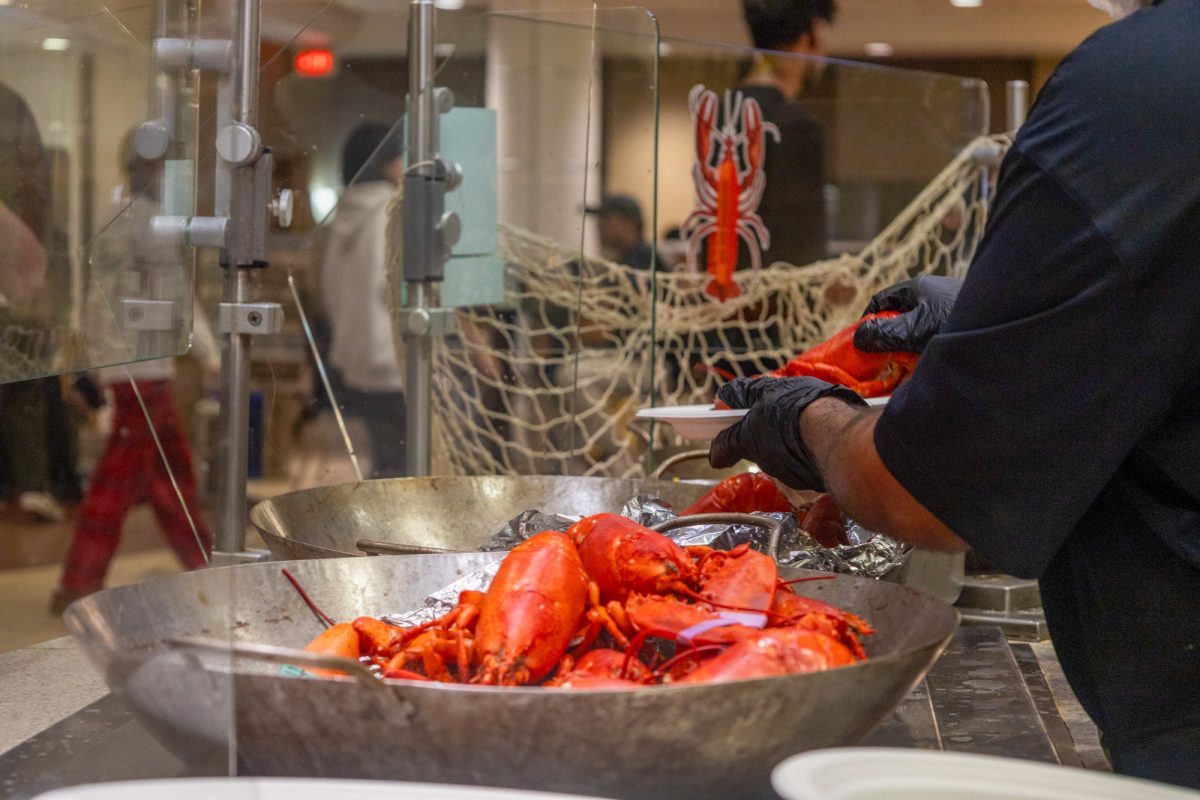
Scientists and STEM professionals across the nation are taking a break Wednesday from all work, meetings and classes as part of the #ShutDownAcademia and #ShutDownSTEM movement.
The movement calls for those not actively researching a COVID-19 vaccine or other aspect of the pandemic to #Strike4BlackLives. Participants are encouraged to cease normal activities, showing support for Black colleagues and solidarity with those working toward ending systemic racism, according to the ShutDownSTEM website.
Faculty and students at Boston University participated in the movement and initiated discussions about racism in STEM.
ARROWS: Advance, Recruit, Retain and Organize Women in STEM, sent an email Tuesday to subscribers, announcing its support of the movement and that it would host a forum for students and staff.
ARROWS Director Joyce Wong said she and fellow administrator Cristian Morales started planning the forum Tuesday afternoon.
Morales wrote in an email that the event was initially inspired by #ShutDownSTEM.
“But [it] is undoubtedly happening now to reflect and focus the momentum that the Black Lives Matter movement is experiencing in response to the public outrage over the murder of George Floyd at the hands of the police.”
Morales said it is important to incorporate work and academics into the fight for equality because these are parts of everyday life. He wrote everyone should participate to show they “refuse the alternative of passively standing by” and letting circumstances continue as normal.
“We encourage any and all BU students, professors and researchers to engage in this work, because it’s the right thing to do: full stop,” Morales wrote. “Anything less is perpetuating the conditions of racism that left George Floyd gasping for breath and pleading, ‘I can’t breathe.’”
Wong, a College of Engineering professor, said it is important to promote diversity, especially at universities like BU.
“Put simply, diversity makes us stronger,” Wong said. “I can say definitively from a science perspective that if you’re excluding any one person for whatever reason, whether it’s racism or sexism or any kind of reason, any kind of bias, then, actually, science can stagnate.”
Wong said this is not a movement that should wane in momentum after the day’s discussion.
“This is institutionalized racism that has been in our nation for such a long time,” Wong said. “It’s important, I think, for people to educate themselves and feel the weight of what the impact and make of racism has had, and not use excuses.”
Rising College of Arts and Sciences senior Victoria Jordan, president of BU’s chapter of Alpha Chi Sigma, wrote in an email that the chemistry fraternity encourages participation and will host a Zoom meeting Wednesday to reflect and discuss how its members can be better allies.
Jordan, a biochemistry and molecular biology major, wrote that she is uncertain what each brother’s participation will look like because they cannot meet in-person at this time, but that she hopes members take the day to research racial injustices.
Some members are currently working in STEM through the Undergraduate Research Opportunities Program, and some are taking part in remote internships. Others, meanwhile, have had to take up unrelated employment due to the COVID-19 pandemic.
“Many of our members already have taken their responsibility to educate themselves and others,” Jordan said, “but I think this one-day movement will encourage more to overcome resource overload, or any other obstacles that may have been stopping them and to start learning.”
AXS Professional Development Chair Victoria Lopez, a rising junior in the Sargent College of Health and Rehabilitation Sciences, wrote that cognizance of systemic racism is important to bettering the work of STEM professionals.
“Making STEM more inclusive allows for the methods and the outcomes of innovation to benefit beyond the white majority,” Lopez wrote. “STEM is meant to be an innovative and advancing area of industry, and the entire structure of it must reflect that.”
UROP staff emailed its participants Tuesday urging them “join the strike and take the day off from research to reflect and take action against racism.” The email also announced staff’s Wednesday office hours would be rescheduled to Thursday.
Professor and Biology Department Chair Kim McCall said she sent an email to graduate students and faculty in her department Tuesday in the hopes that they too would participate. She said the Biology department was among many others, including Biomedical Engineering and Chemistry, that took action.
#ShutDownSTEM, McCall said, not only sheds light on national attempts to end racism, but also serves as an opportunity to alter it within the STEM community.
“In STEM, we see a real lack of Black graduate students, Black faculty for sure,” McCall said. “I think this is a time to try to face what is behind that and really make progress towards changing that.”
McCall said she hopes professor participation encouraged others to join the shutdown.
“As leaders, it sends a message to the other faculty, the students, the staff that this is something we value as a department and we should all be participating in,” McCall said. “I think it makes it easier for students who want to participate to stand up.”
Sunnie Kong, a rising CAS senior studying biochemistry and molecular biology, wrote in an email that she planned to participate.
“As a non-Black person I need to learn more about the issues that Black people have always faced, and how I can work toward being a better ally,” Kong wrote. “I will be stepping back from the remote work I’ve been doing for UROP and my teaching job and using the day to reflect and learn individually as well as through conversation with my participating peers.”
Kong added that the point of #ShutDownSTEM is to provide a conscious choice to dedicate the day specifically to thinking about issues of racial inequity and inclusion.
“Yes, we have been discussing current events and throwing out what steps we can take as individuals, as labs, as departments, but this day is for focused conversation and concrete planning,” Kong said. “We’re stepping away from our regular work, but this is work too.”

















































































































